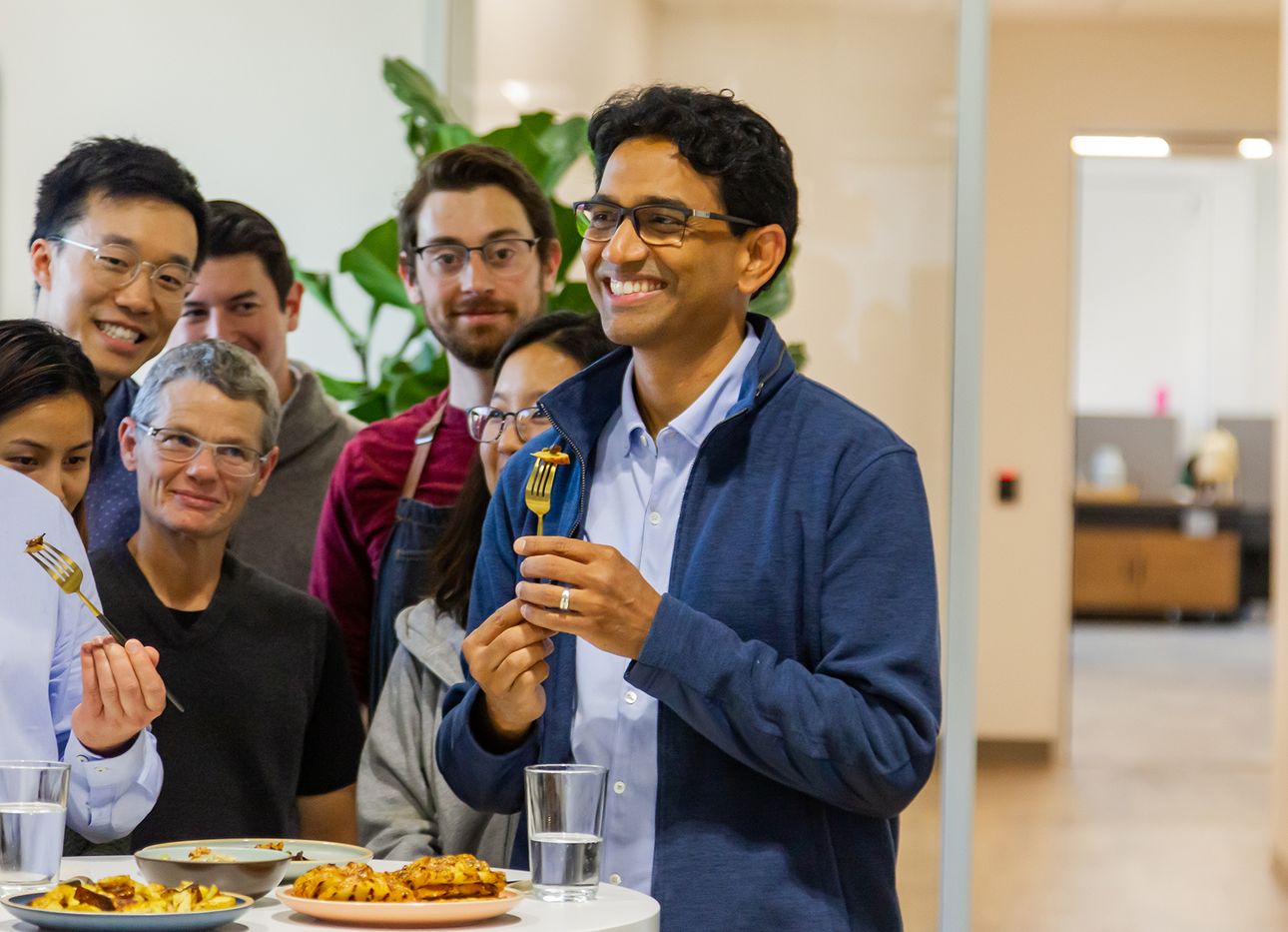
This Documentary Follows a Start-Up Taking Animals Out of Meat Production
A sobering 2006 report by the United Nations Food and Agriculture Organization laid out the striking impacts industrial animal agriculture has on people and the planet. In addition to the financial cost of its water and land use, and the potential for pathogens to flourish in feedlots, the practice puts out around 14 percent of global civilization’s greenhouse gases every year—more than that of cars and trucks combined.
While our current food systems suggest a bleak future, the emerging “cultivated meat” industry aims to help change that trajectory with its radical work: It grows meat from the cells of living animals, eliminating the need to breed, raise, and slaughter them. The product, also referred to as “clean meat,” “cell-based meat,” or “lab-grown meat,” is the focus of Meat the Future (out last week to rent or buy on Apple TV and Google Play), a documentary that follows the rise of Upside Foods (formerly Memphis Meats), a start-up at the forefront of the field. Directed by Liz Marshall, the eye behind 2013’s animal-rights deep dive The Ghosts in Our Machine, the film centers on Upside’s co-founder and CEO, Dr. Uma Valeti, a cardiologist who, while growing up in India, saw firsthand how animals were killed for food and dreamed of meat growing on trees as an alternative. In 2015, he moved to San Francisco to further develop his idea of cell-based meat production. At the start of the film, its narrator, Jane Goodall, calls the innovation “the next agricultural revolution.”
Viewers learn, through Marshall’s methodical, explicatory approach, how Upside gets off the ground and advances its technology. At one point in the film, we see chicken muscle cells through a microscope. “I’m still blown away by how complex the structure itself is,” says Upside scientist Eric Schulze, who compares the cells’ organization to Van Gogh’s “Starry Night.” Much of the 90-minute film is spent unpacking the specifics of how the sausage is made, so to speak, in which the science focuses on cell division in lieu of the reproductive process. Scientists and journalists, shown eating the food, seem genuinely impressed with cultivated meat’s flavor and texture.
While it’s intriguing to imagine an America devoid of industrial agriculture, the film doesn’t exactly explore the hurdles of making that vision a reality. Some opposing views appear through footage from an FDA and USDA conference focused on branding “clean meat,” sparked by livestock farmers protesting that the “m-word” shouldn’t be associated with the new product, and via interviews with people from various American Cattlemen’s Associations. But we don’t hear other perspectives, such as those of chefs or restaurateurs, or learn how the industry might fit into a food culture that’s shifting toward plant-based cuisines. There’s also scant discussion of the affordability and accessibility of cultivated meat, or the technical challenges of producing it on a major scale.
Still, the documentary makes an important point about the potential for agricultural innovations to transform our food systems for the better—and makes a case for why companies like Upside are worth paying attention to. “From a consumer perspective, we’re facing a brave new world,” a scientist says in the film’s trailer. “Technology that was once the stuff of science fiction is now becoming a reality.”